Science
OUR VISION:
To nurture students as inquirers.
OUR PEOPLE:
The Science Department of Lianhua Primary consists of experienced teachers who are united with a common purpose—to inculcate Science knowledge and values in our students through planned execution of fun learning experiences.
Our science teachers serve as leaders of inquiry in the classroom, fostering an environment that nurtures curiosity, creativity, and critical thinking. Through this approach, students develop essential skills and gain a deeper understanding of scientific concepts. We also integrate STEM (Science, Technology, Engineering, and Mathematics) mindsets into our lessons to cultivate students' interest in Science while enhancing their critical thinking and problem-solving skills.
FOCUS in Science
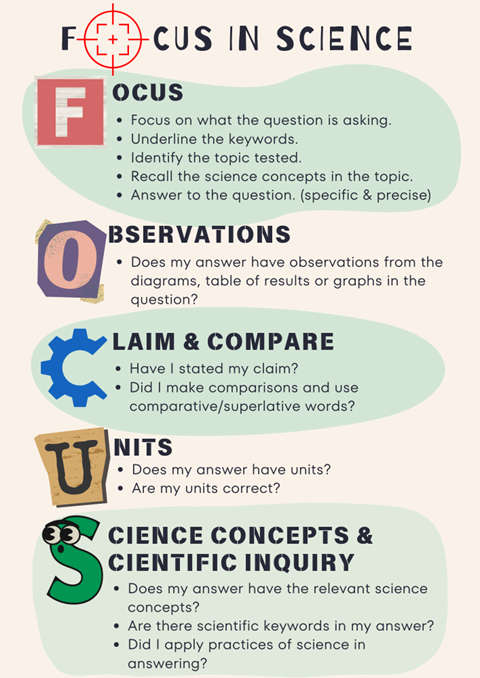
Teachers in our school adopt the FOCUS in Science framework to develop students’ scientific thinking and structured responses. This structured approach enables students to tackle Science questions with clarity and precision, boosting their confidence.
SOME OF OUR PROGRAMMES AT A GLANCE:
- POTS (Primary One and Two Science)
- Yes! Programme (Young Exploring Scientists! Programme)
- Science@Home Programme
- Fun With Science
- Eco-Stewardship@LHPS
POTS (PRIMARY ONE AND TWO SCIENCE)
To enrich our students’ learning experiences, our school has crafted a special curriculum to give our students a headstart in the learning of Science in Primary 1 and 2. We have aligned the curriculum with our school’s student outcomes, namely Passionate Learner, Critical and Creative Thinker, Confident Communicator and Exemplary Leader, and MOE Science Syllabus 2023. This curriculum is aptly named POTS (Primary One and Two Science) as we are the “pots” with the nourishment for our young and naturally curious “seedlings” (our students) to grow and blossom.
The lessons often take place in our science garden where students, as exemplary leaders, learn about flora and fauna and nature manners. In the course of the learning, our students’ passion in science is ignited and they are given opportunities to be critical and creative thinkers with the questions they ask and share confidently the discoveries they have made. They also develop their practices of science such as observing, classifying, comparing and communicating when they learn about different animal groups and plants.
Photographs of students exploring the garden and sharing their learning
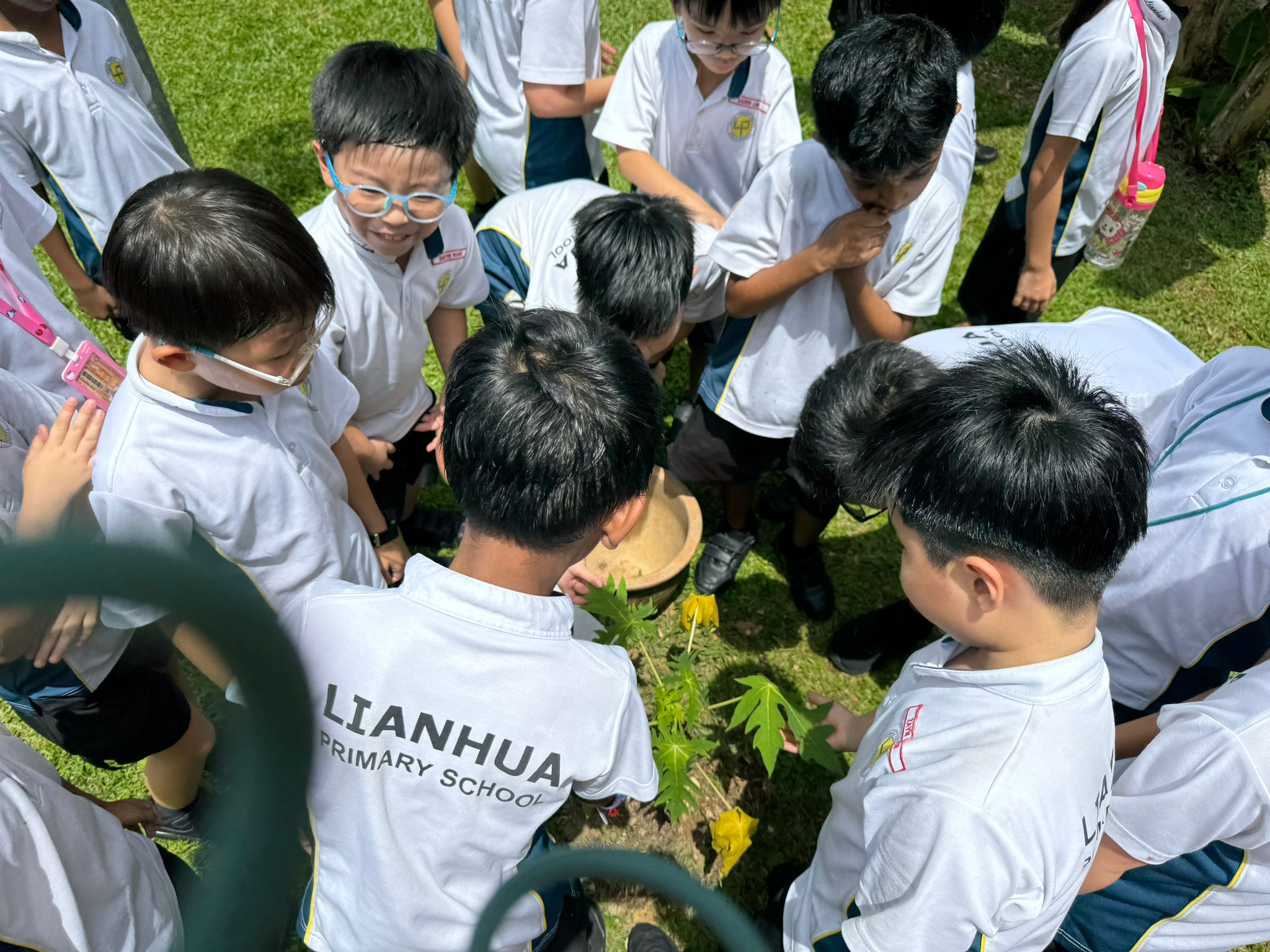 Students observing a plant with lobed edge Students observing a plant with lobed edge |
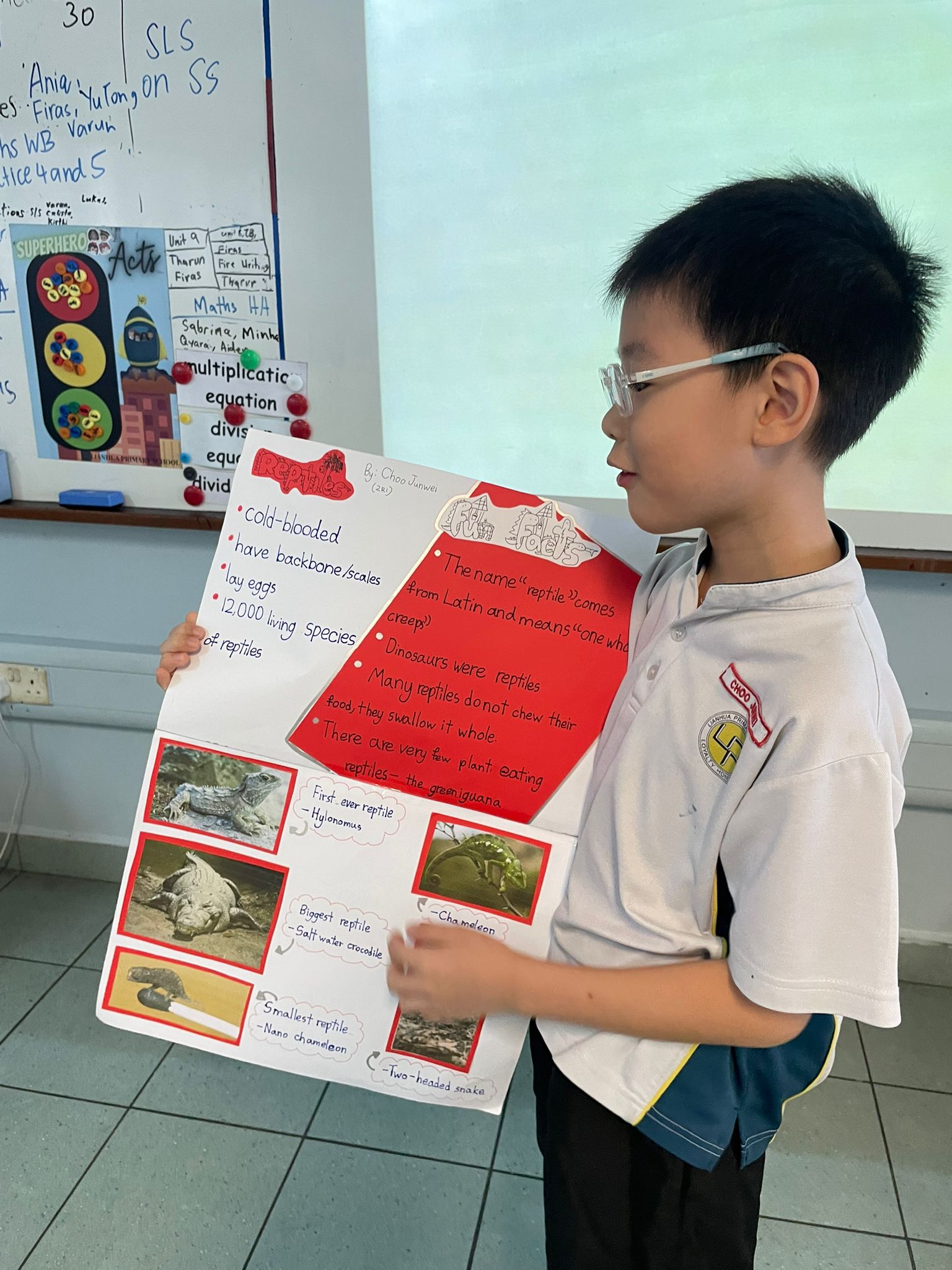 Students doing a Show N Tell on Reptiles Students doing a Show N Tell on Reptiles |
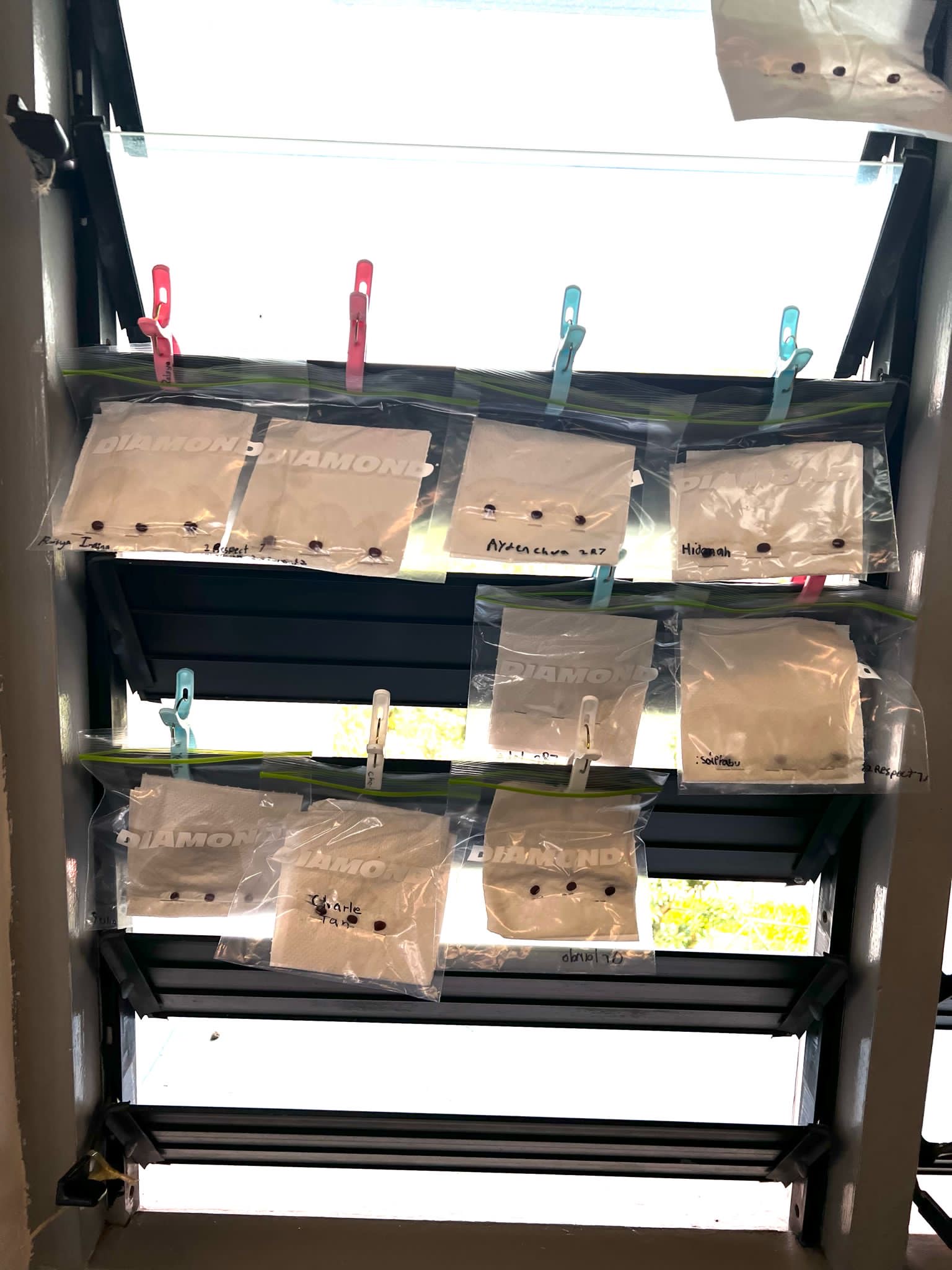 Pocket Gardens by the students Pocket Gardens by the students |
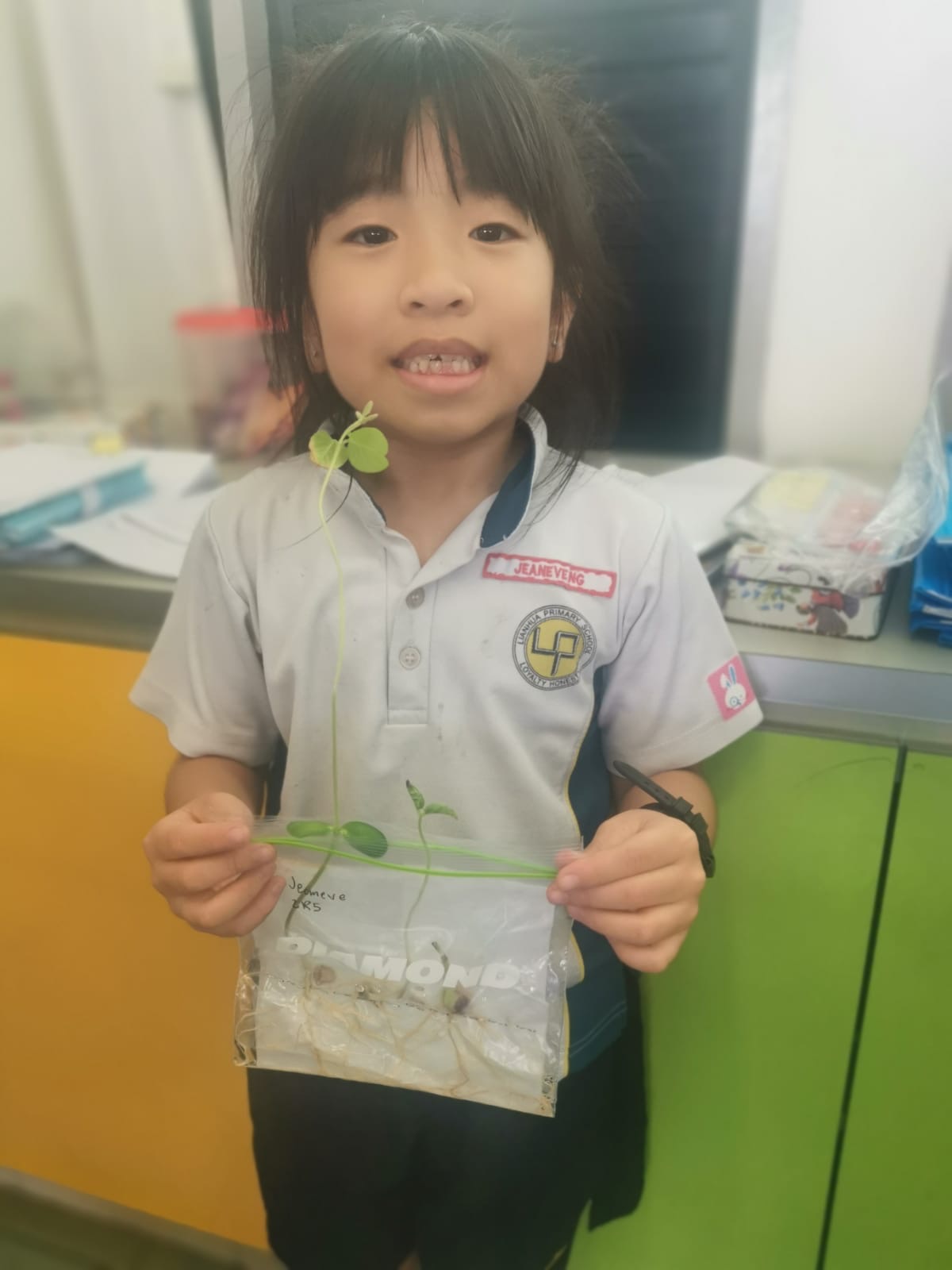 Student with her pocket garden
Student with her pocket garden |
| Some questions our P2 curious students have: Where do seeds come from? Why does a cactus have spikes? How do plants come from seeds? Do plants die? |
One of the students asked: 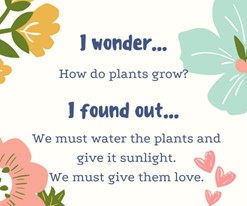 This student wondered and felt that love was needed by the plants to grow. This is also exactly how we support our students’ growth in learning, with love. |
In term 4, after a culmination of what they have experienced in P1 and P2 POTS, they take on the role of a field scientist to hone their skills and deepen their understanding. They continue their exploration and discovery-making beyond the classroom.
Field Scientists@Work!
 |
 |
 |
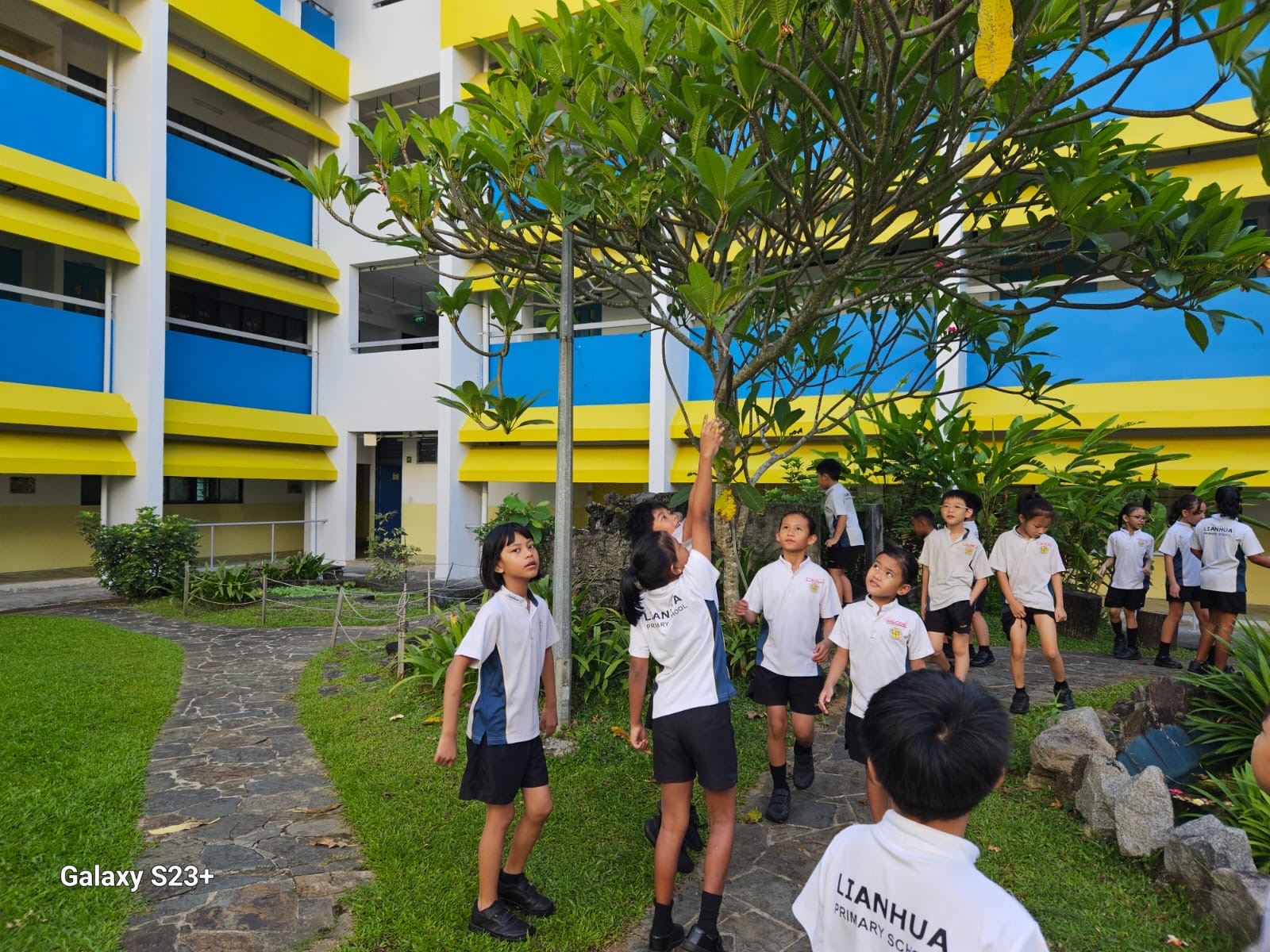 |
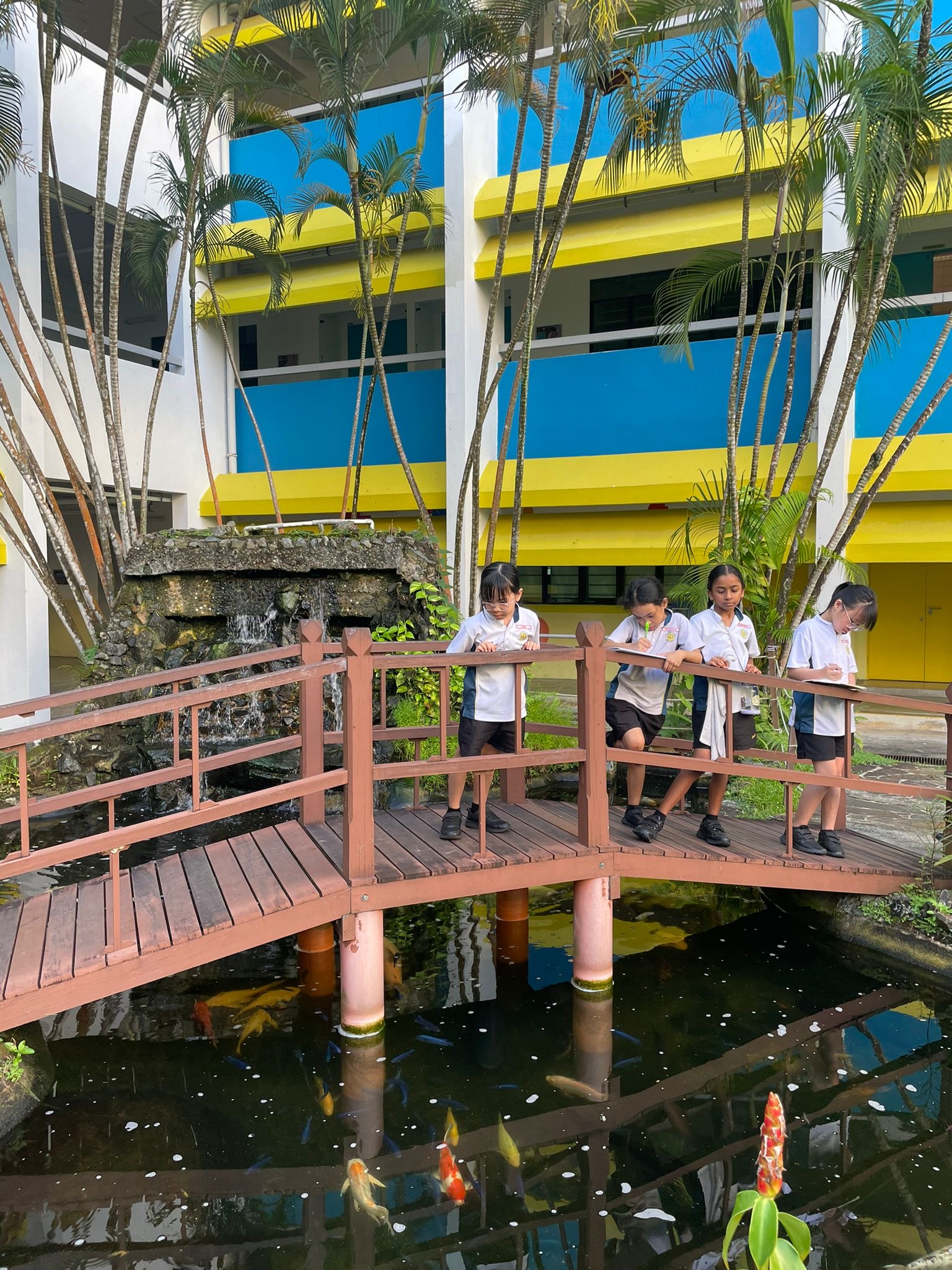 |
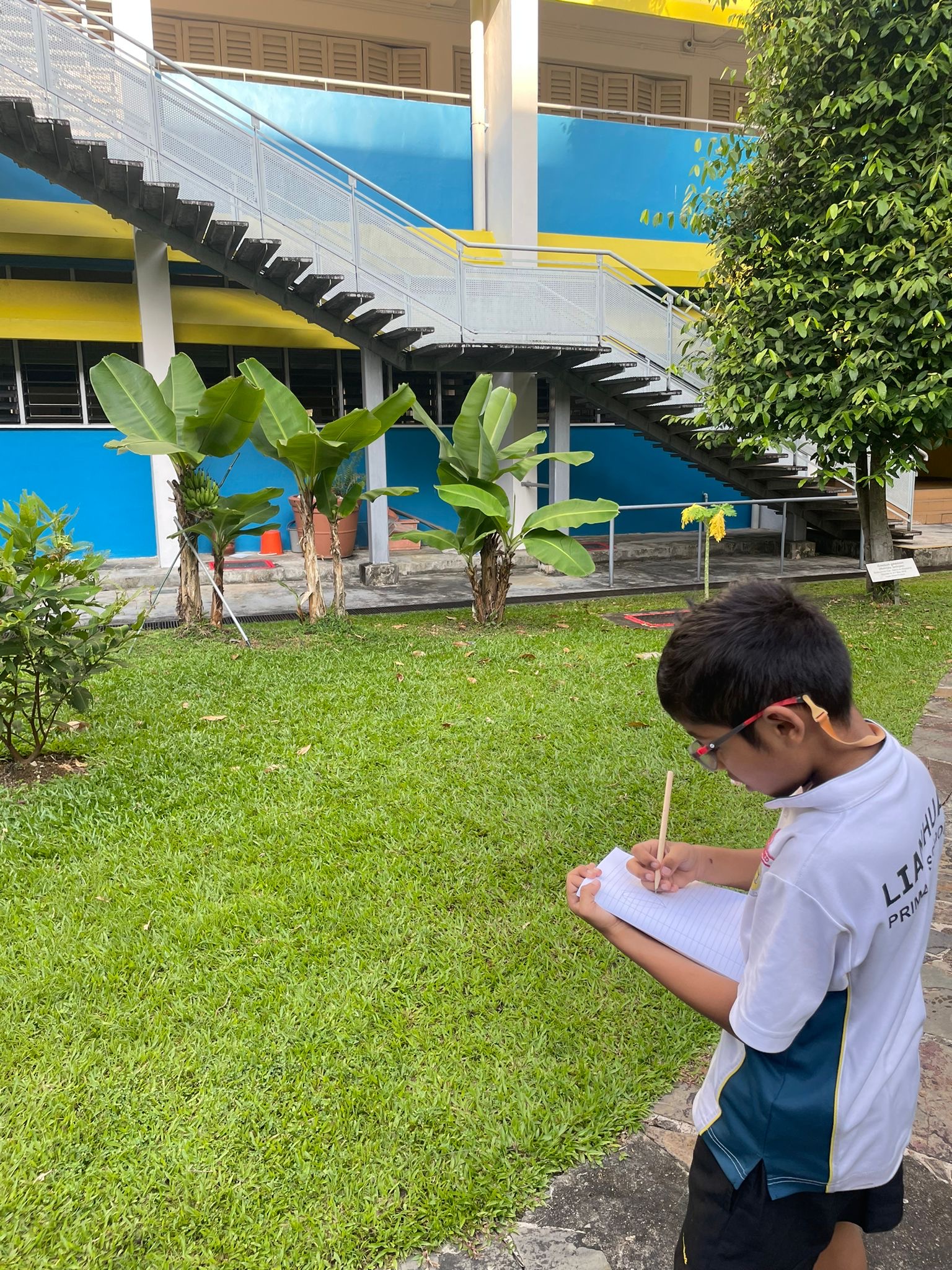 |
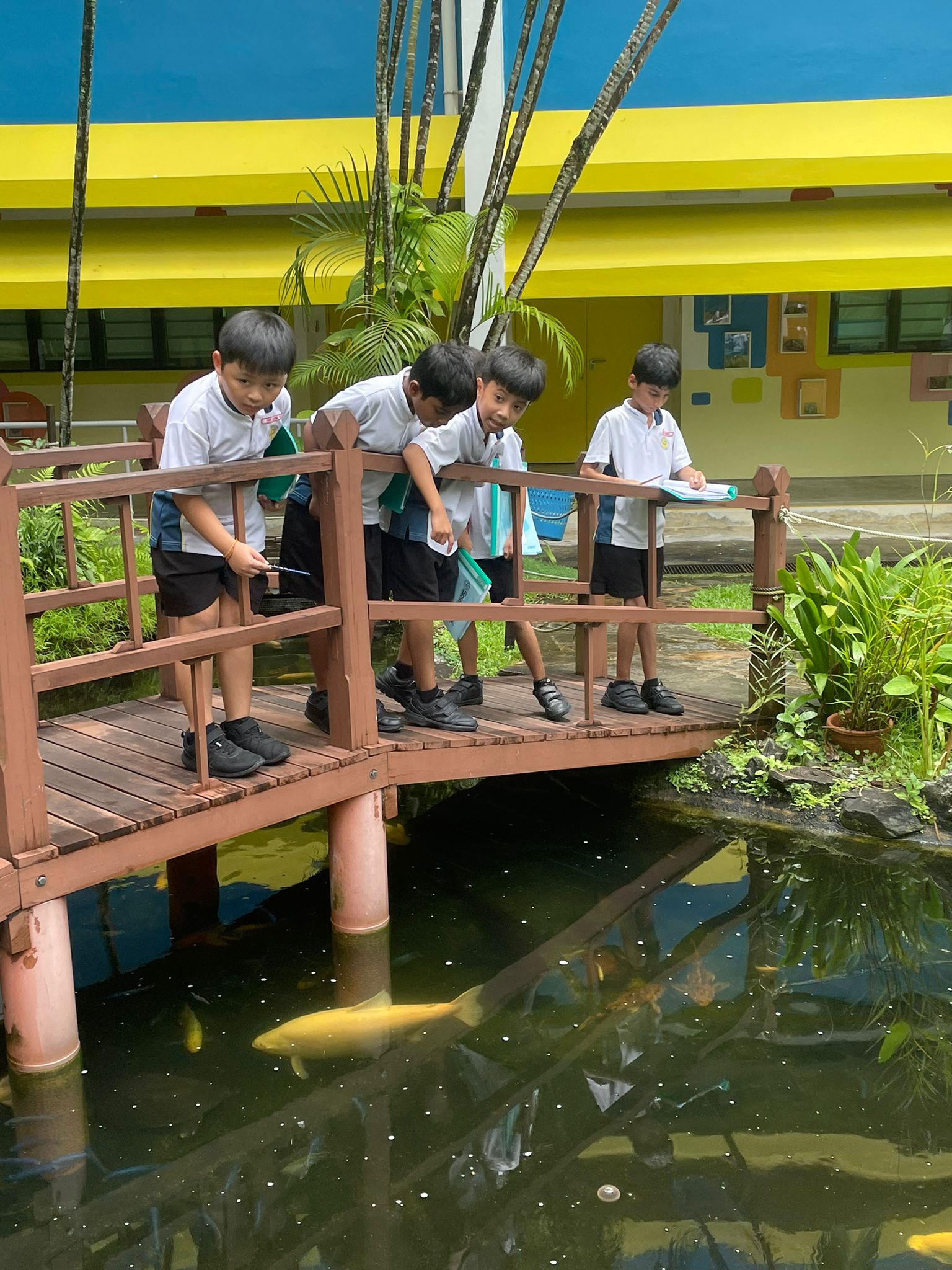 |
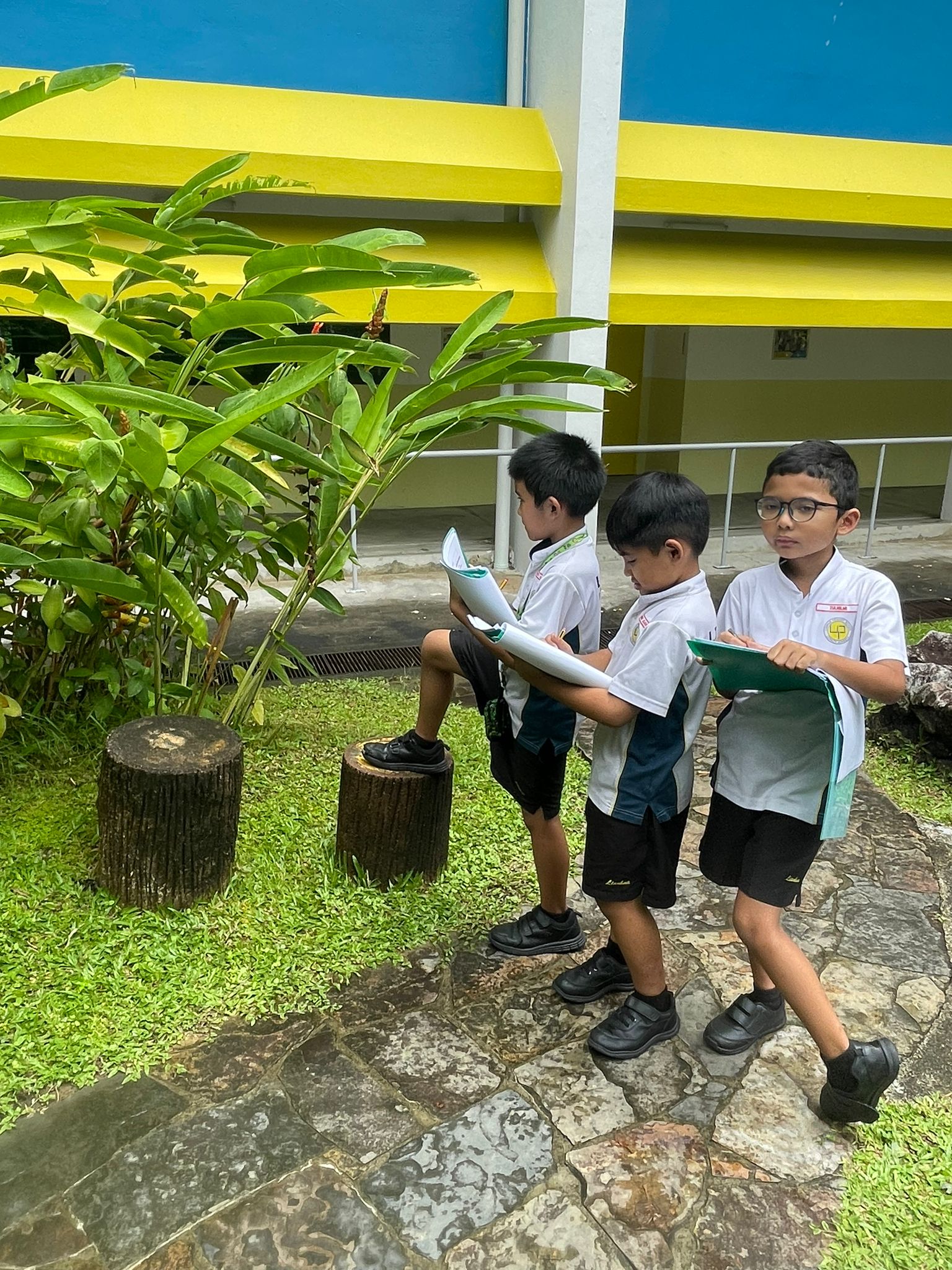 |
|
YES! (YOUNG EXPLORING SCIENTISTS) PROGRAMME AND OUR SCIENCE STEWARDS
The world is constantly evolving. How do we at Lianhua Primary prepare our students for their future so that they can stay relevant?
Our answer to that is the Young Exploring Scientists! (YES!) programme. Through this programme, we aim to inculcate STEM skills and mindset to prepare the younger generation for rapid technological advancements. In this programme, P3 to P6 students are exposed to the construction of science toys and STEM challenges. They are also given opportunities to participate in level-based programmes that were specifically selected for their alignment to the science concepts and topics that they are learning.
Science Toys and STEM Challenges
The use of science toys actively creates learning opportunities for students to experiment and extend their learning beyond the classroom. More often than not, students do not successfully complete the creation of the science toys within the first try. This is the same for STEM challenges where students design their own prototypes and test out the suitability of the designs in fulfilling the challenge requirements. The process of creating and testing, then refining, is a long and tedious one, but students are encouraged by their teachers and spurred on by the successes of their peers to persevere until they do succeed. This is part of the STEM mindset. In STEM, mistakes and failed attempts are viewed as positive experiences, offering opportunities for deeper learning and questioning that will lead to eventual success. It also encourages resilience, which is a core value of our school.
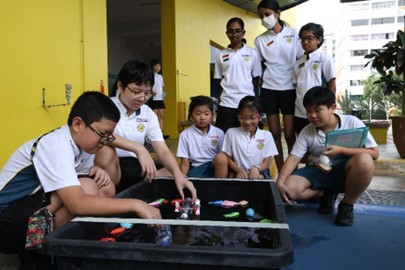 |
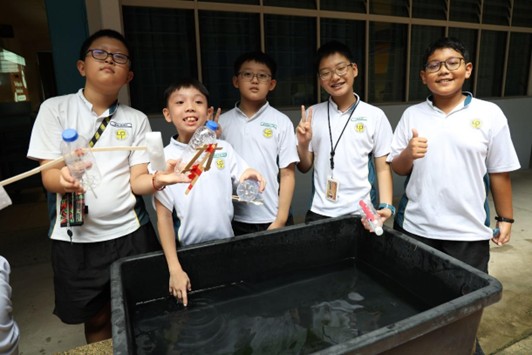 |
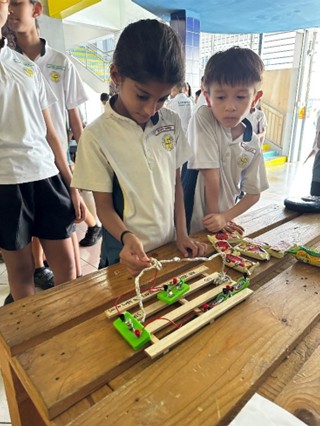 |
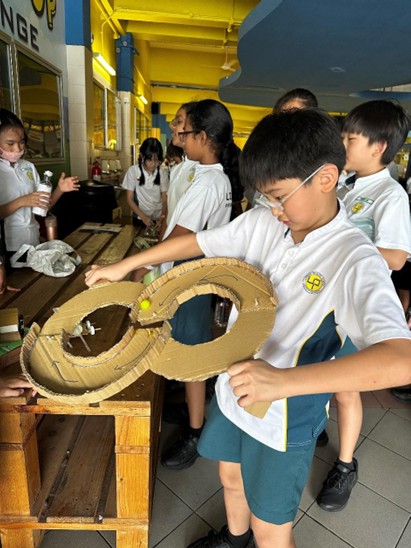 |
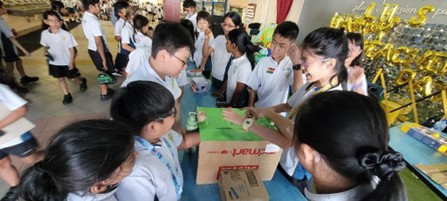 |
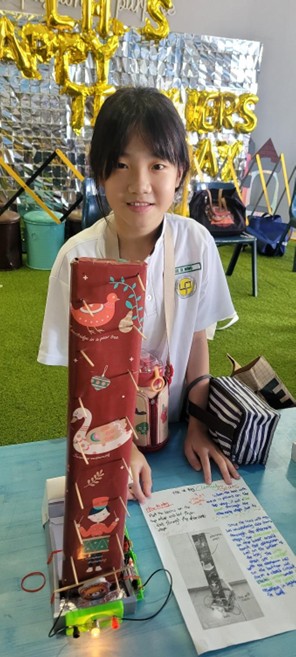 |
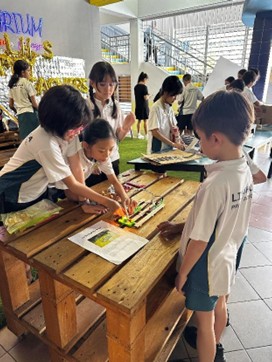 |
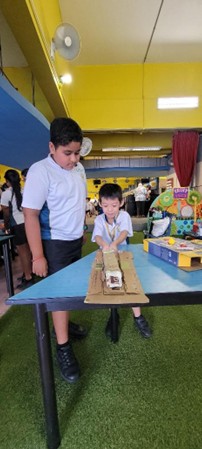 |
Level-based Programmes
For learning to take place effectively, there must be hands-on, active participation. The level-based programmes in YES! empower students to take greater responsibility in their learning as they participate in activities that are aligned with the curriculum.
P4 – Indoor Hydroponics
In this densely populated country, where land and resources are scarce, hydroponics could just be a solution to Singapore’s food supply vulnerabilities. Our P4 students had the opportunity to experience the future of farming in their classrooms! They germinated seeds, transplanted them and cared for them. After weeks of dedication and care, they harvested and were rewarded with fruits of their labour.
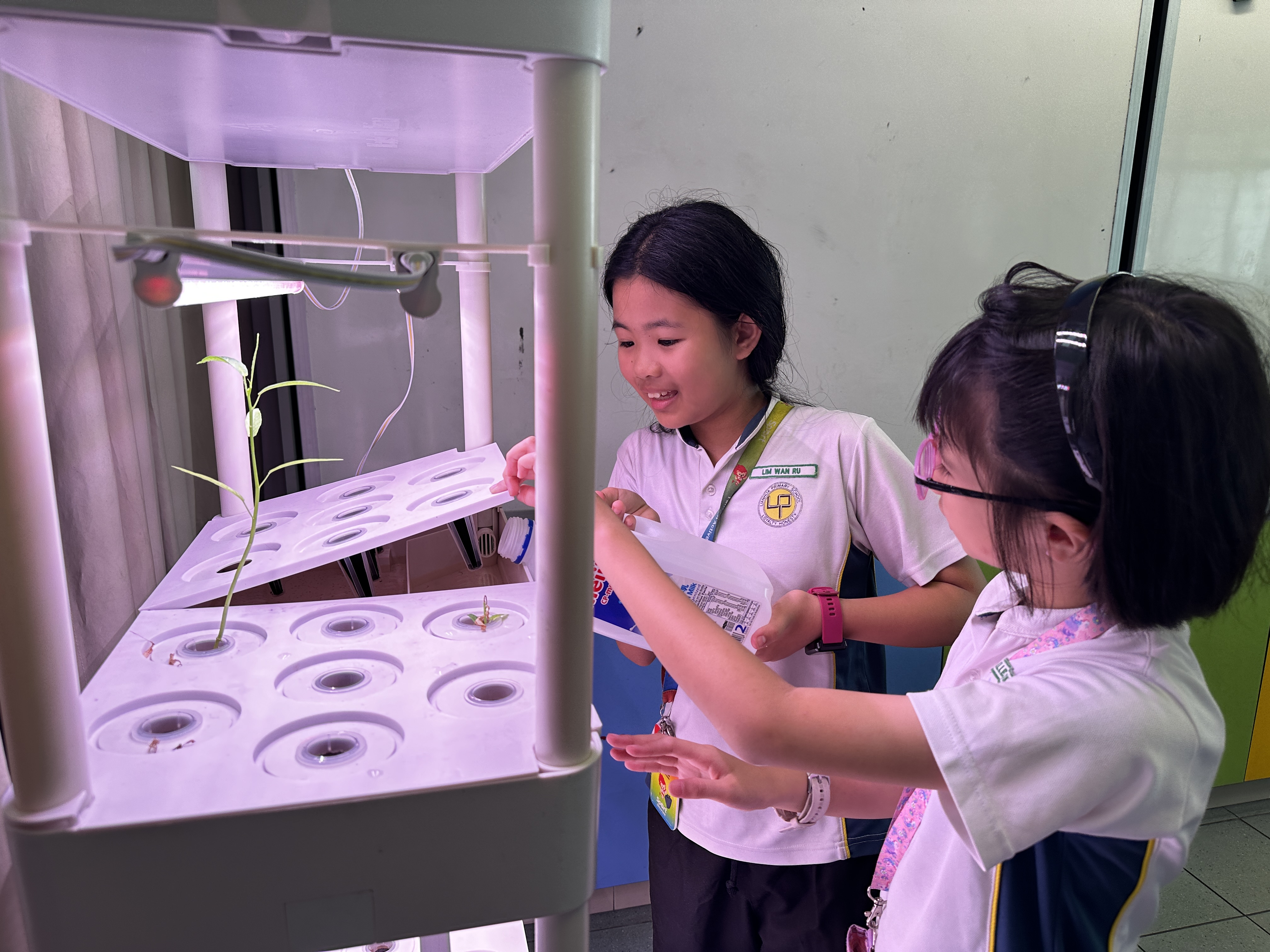 |
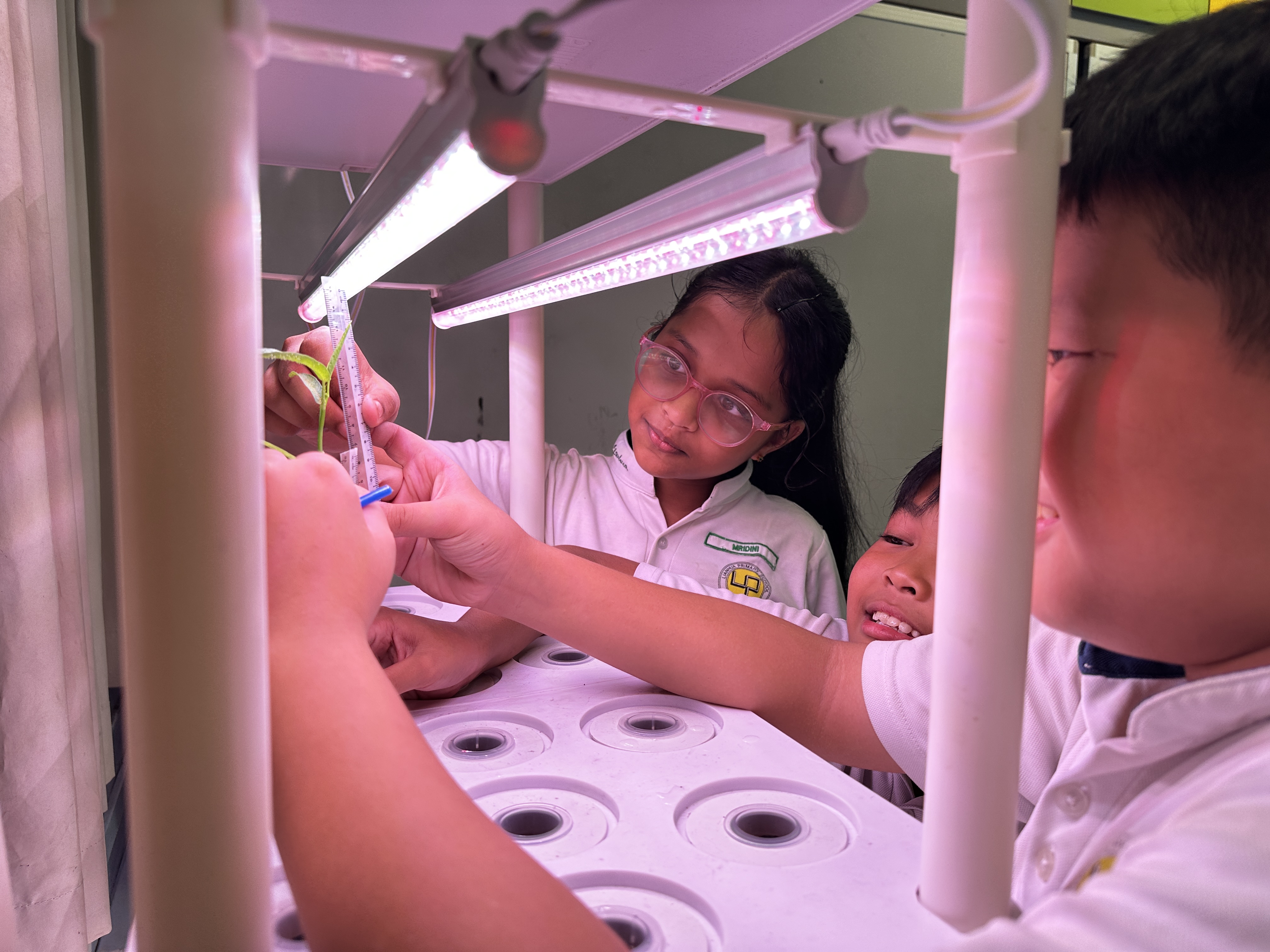 |
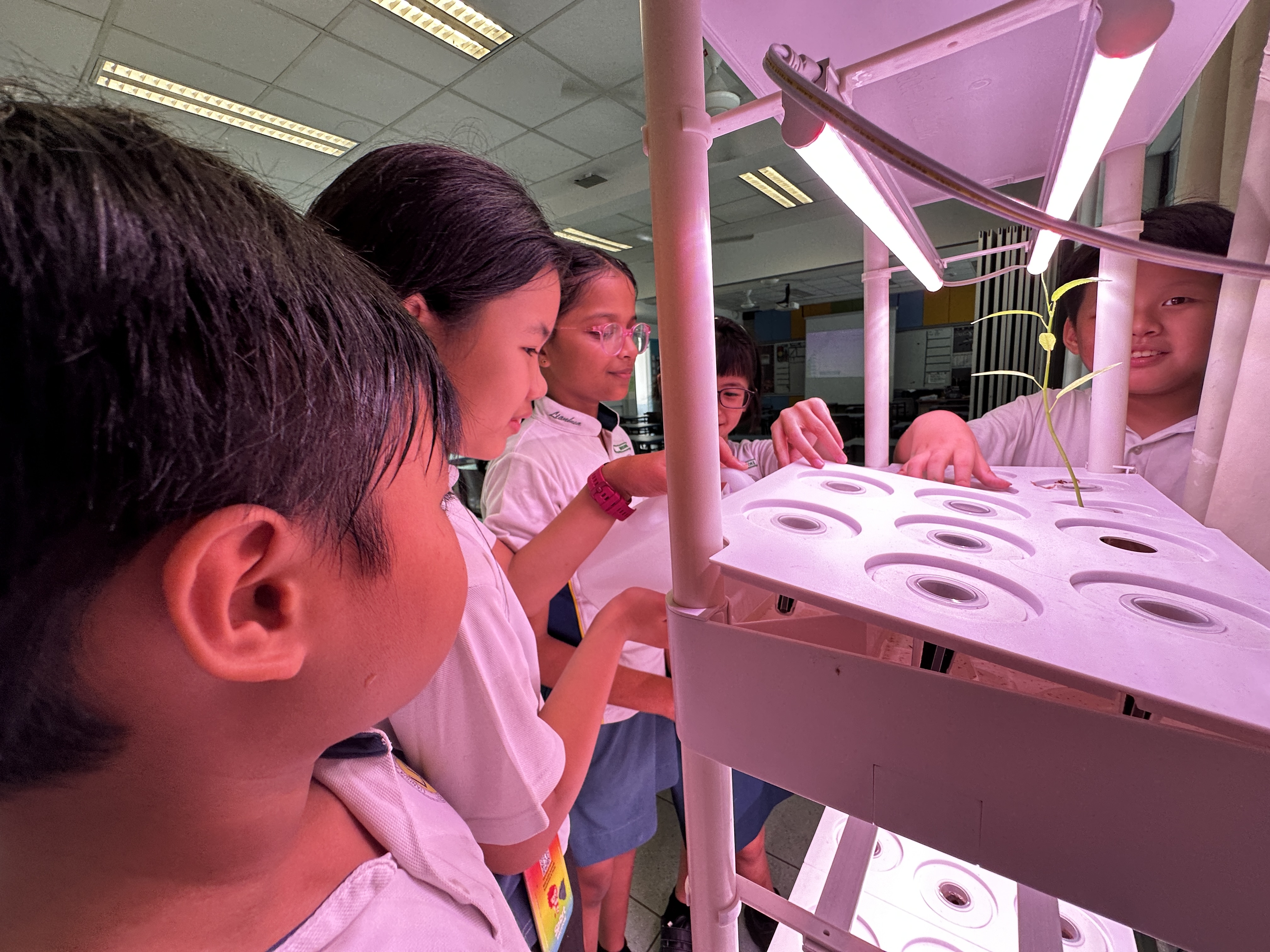
|
|
P5 – Gardening
Equipped with the experience from Indoor Hydroponics, our Primary 5 Science Stewards dedicated their time and effort on food sustainability, growing Spanish Spinach in the school’s garden. They used the compost from the P6 Composting programme to enrich the soil. With some tender, loving care, the Spanish Spinach was ready to harvest within weeks. The harvested Spanish Spinach was then taken to the canteen for our canteen vendors to cook - a true definition of the Farm-to-Table concept.
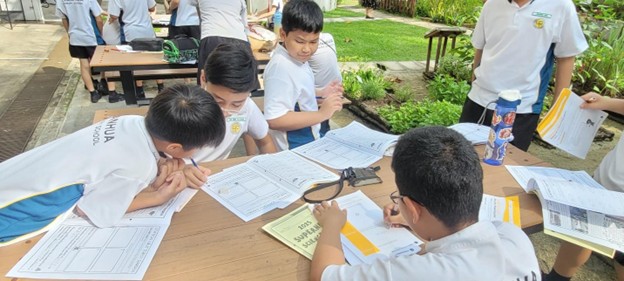 |
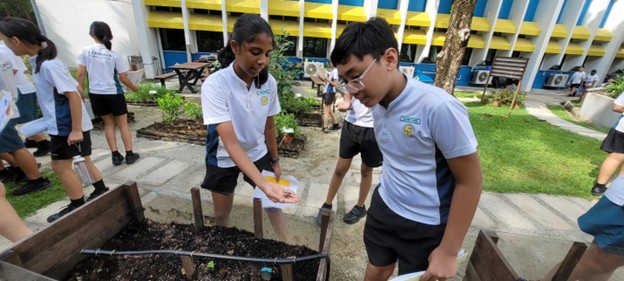 |
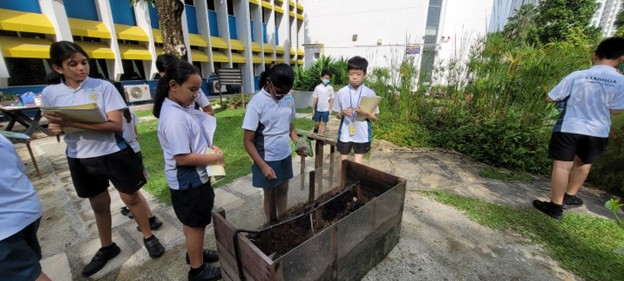 |
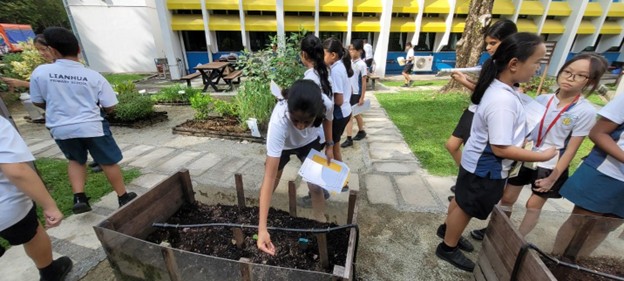 |
P6 – Composting
Our Primary 6 students showed how sustainability could be achieved even within the small compound of our very own school. Science Stewards from various P6 classes had their first-hand experience in amassing compost. The compost was later used to fertilise the soil for plants to thrive in the school. Food waste such as banana skins were broken down by the African Night Crawlers in the soil to produce compost.
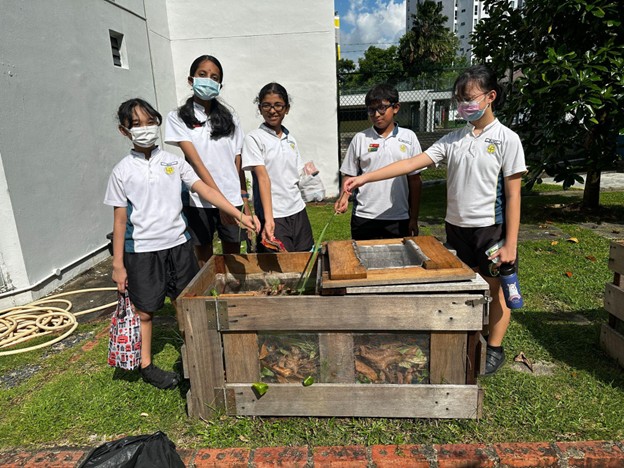 |
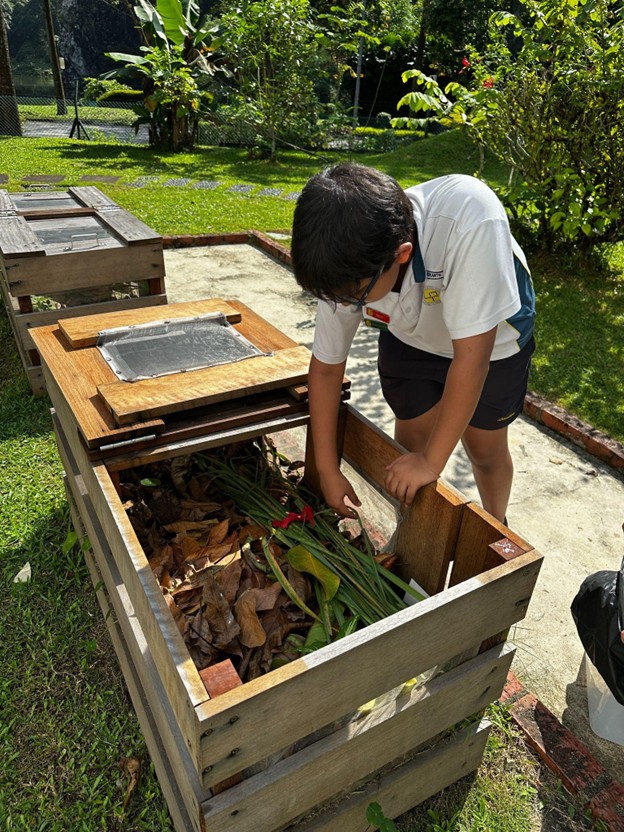 |
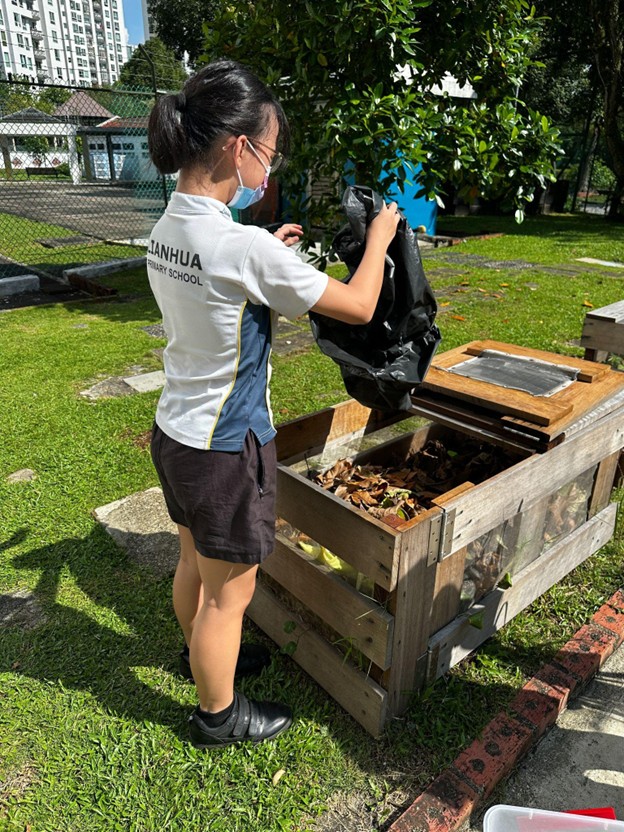 |
SCIENCE@HOME PROGRAMME
Science is most exciting when students can explore and experiment beyond the classroom.
Through the Science@Home programme, each P3-P6 student receives a Science Kit relevant to their curriculum. Teachers create interactive SLS lessons that encourage students to conduct experiments at home, leading to meaningful discussions and deeper learning among peers.
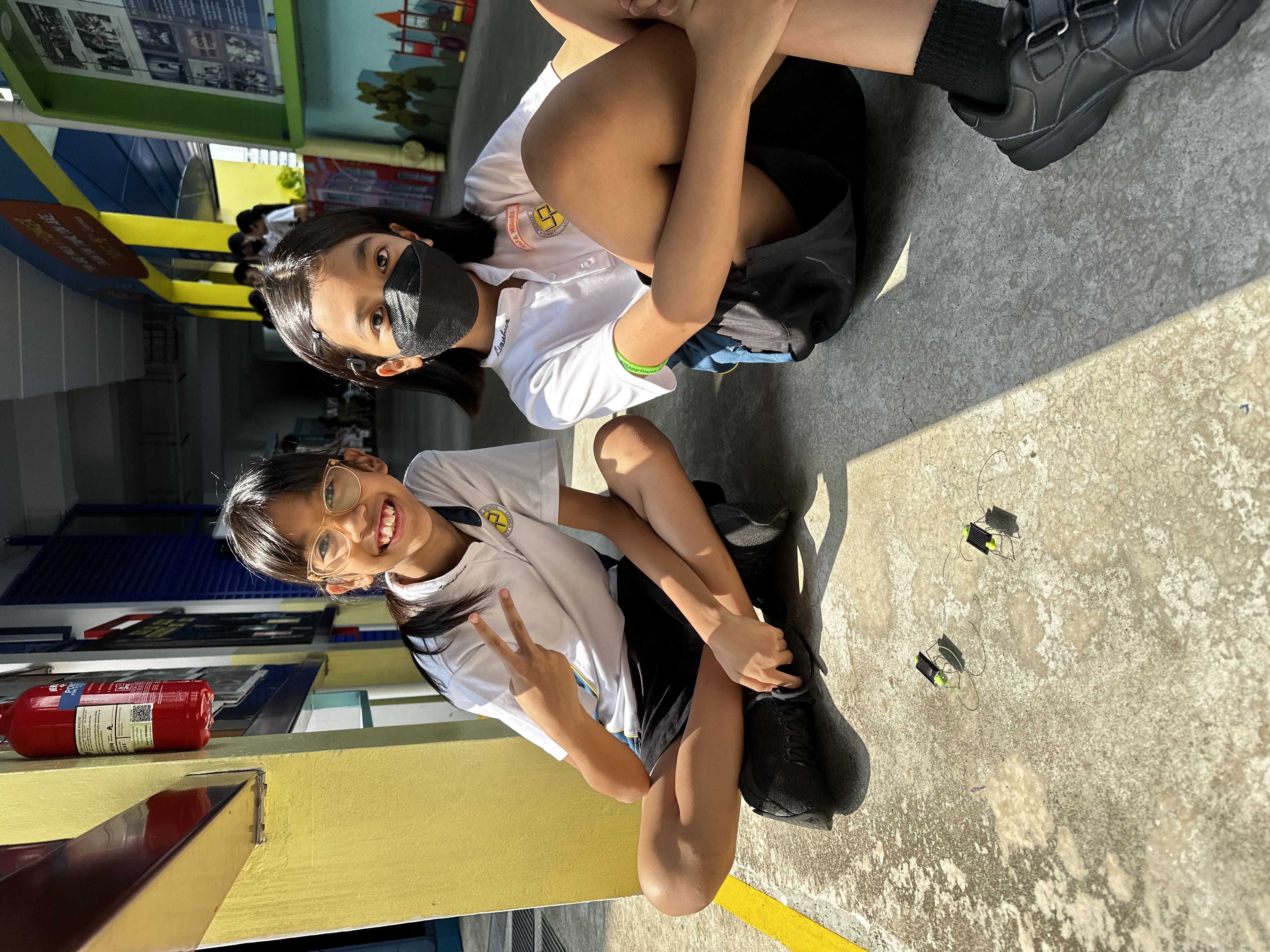
FUN WITH SCIENCE (Primary Four and Five High-Ability Learners)
Designed for high-ability students, Fun With Science aims to spark curiosity and develop critical and creative thinking. Through hands-on activities, students solve complex problems while honing investigative and analytical skills. This enriching experience extends beyond the classroom, inspiring a lifelong love for scientific discovery.
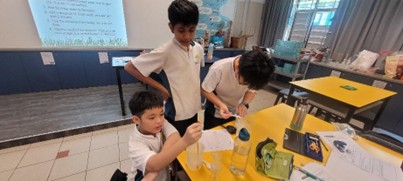 |
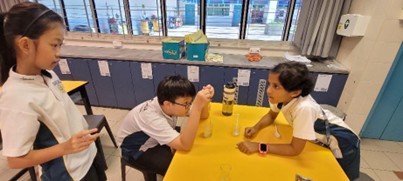 |
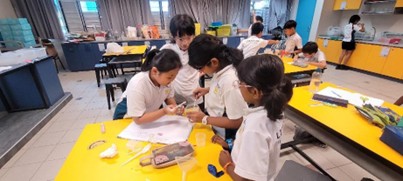 |
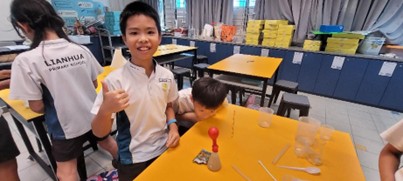 |
ECO-STEWARDSHIP@LHPS
Eco Ville: A Thriving Hub for Science and Sustainability Learning
At LHPS, we believe that learning extends beyond the classroom. Enter Eco Ville, a specially designed outdoor learning space where students engage in hands-on science exploration while cultivating eco-stewardship values. This unique space is a vibrant hub of discovery, allowing students to connect scientific concepts with real-world sustainability practices.
Exploring the Wonders of Eco Ville
Eco Ville consists of eight interactive stations, each designed to deepen students' understanding of science and sustainability:
Spices & Herbs Garden – Learn about medicinal and culinary plants and their uses. 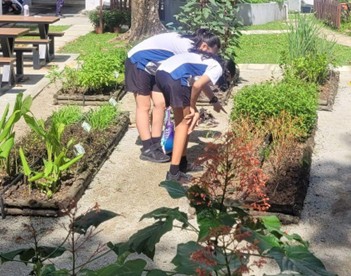
Eco Pond – Observe how nature maintains a balanced, self-sustaining ecosystem.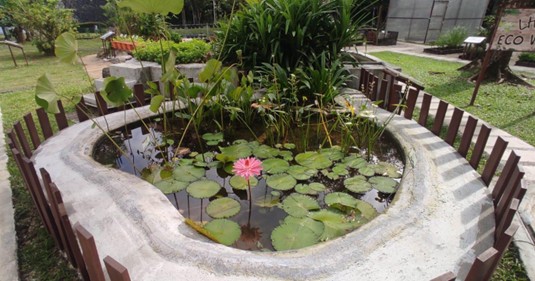
Caterpillar Enclosure & Butterfly Garden – Discover the fascinating life cycle of butterflies and their role in pollination.
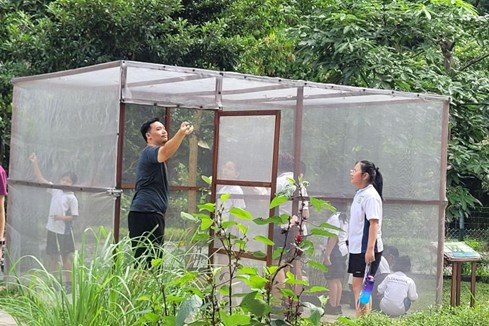 |
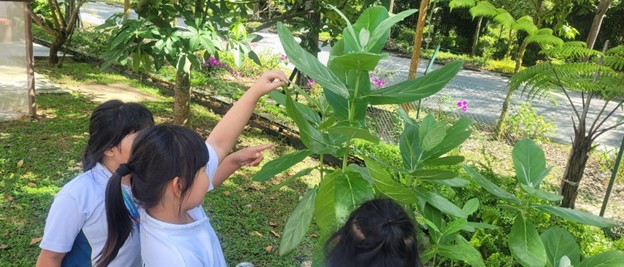 |
Ferns & Edibles Garden – Explore plant adaptations, food security, and self-sustainability.
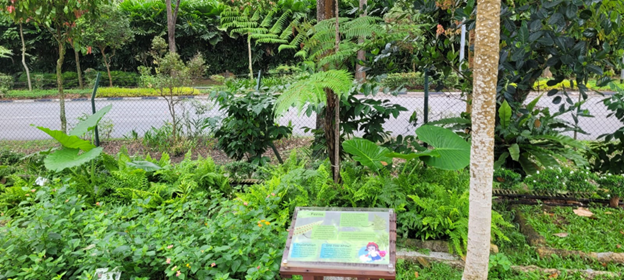 |
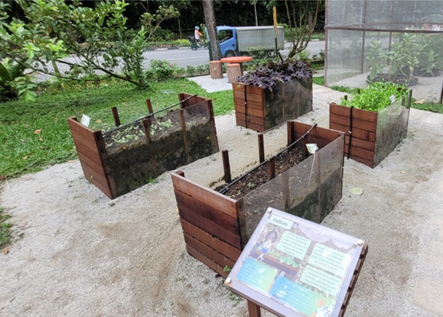 |
Compost & Aquaponics Stations – Understand the science behind sustainable farming, nutrient recycling, and zero-waste ecosystems.
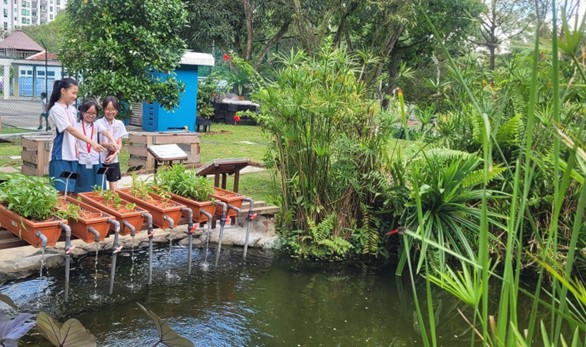 |
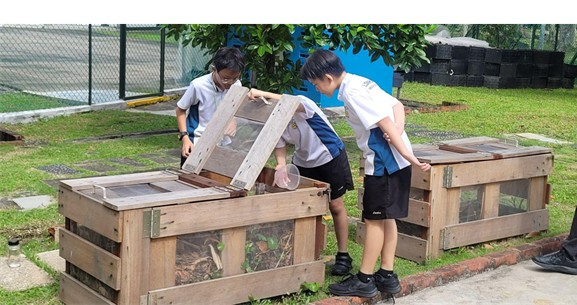 |
Each station is equipped with engaging infographic panels that provide fun facts, critical thinking prompts, and hands-on activities, making learning both interactive and immersive.
Superhero Science Quest: Learning Through Play
To enhance the Eco Ville experience, our specially curated Superhero Science Quest invites Primary 3 to 6 students on an exciting learning adventure. Students take on the role of scientists, tasked with solving real-world environmental challenges through inquiry, teamwork, and creative problem-solving.
Aligned with the Science syllabus, this quest sparks curiosity and deepens conceptual understanding, empowering students to become passionate learners and critical thinkers.
YES! Recess Programmes: Everyday Learning in Action
Eco Ville also comes alive during recess through our YES! activities, where students engage in different activities such as mini gardening projects, observing butterfly metamorphosis and Eco challenges on waste reduction & sustainability.
These bite-sized activities reinforce key scientific concepts while making eco-consciousness a daily habit.
Green School Activities: Leading by Example
Our Primary 6 students actively participate in Green School Activities aimed at increasing awareness in creating a more sustainable and healthy school environment. These include:
- Litter-free Environment initiatives
- Dengue Prevention awareness
- 3Rs (Reduce, Reuse, Recycle) programs
- Energy Efficiency & Conservation
By carrying out awareness campaigns within the school, these students serve as Confident Communicators, educating their schoolmates on eco-friendly practices. Their leadership helps drive a culture of responsibility and environmental consciousness throughout the school.
Empowering Student Leaders - Science Stewards
‘One is never too small to make a difference’.
Lianhua Primary School has a passionate group of youngsters who commit their time and energy to preserving the school’s flora and fauna. This special group of people make up the LHPS Science Stewards.
These Science Stewards are volunteers from various classes of differing levels and they range from P3 to P6. Upon confirmation of their Science Stewards status, these students are trained to assist in the running of Science/Eco-stewardship programmes and challenges across the different levels.

